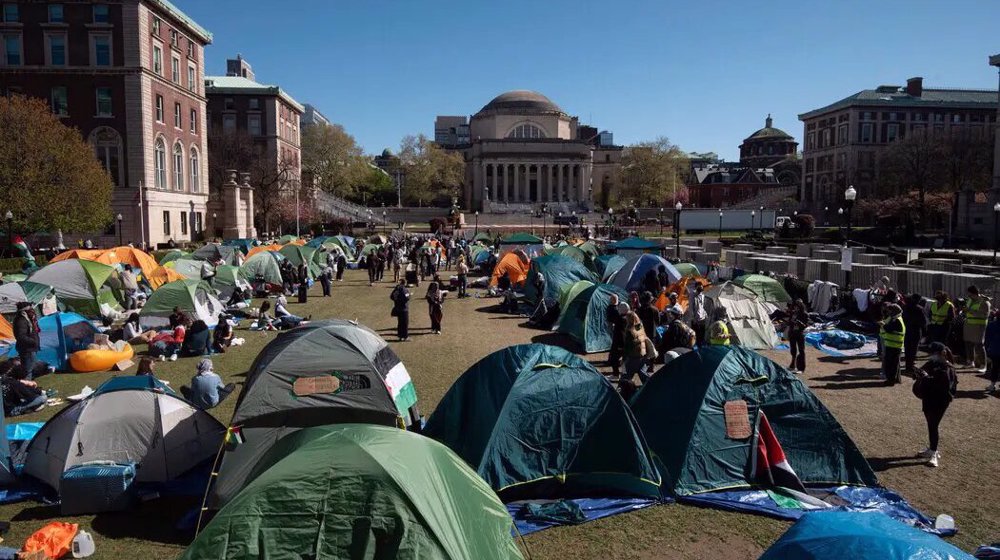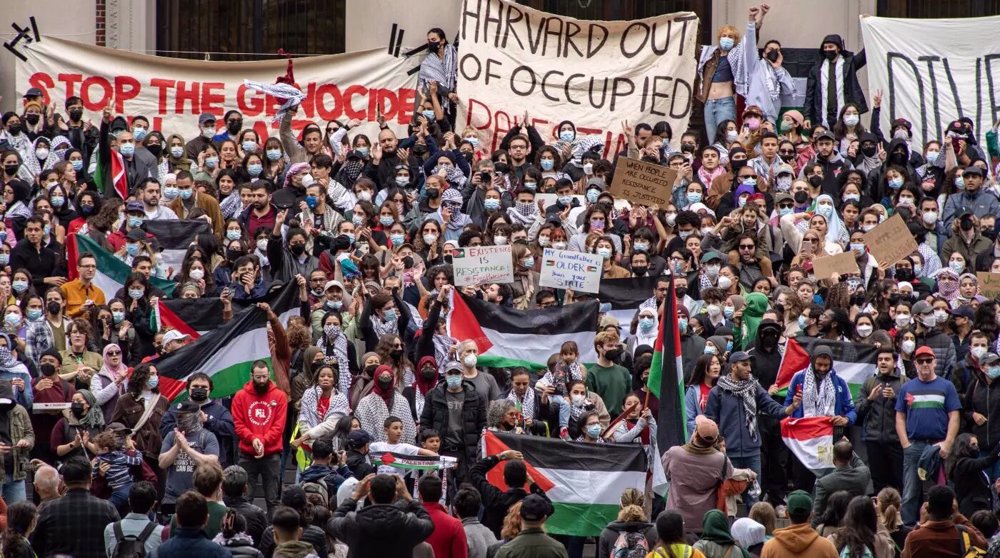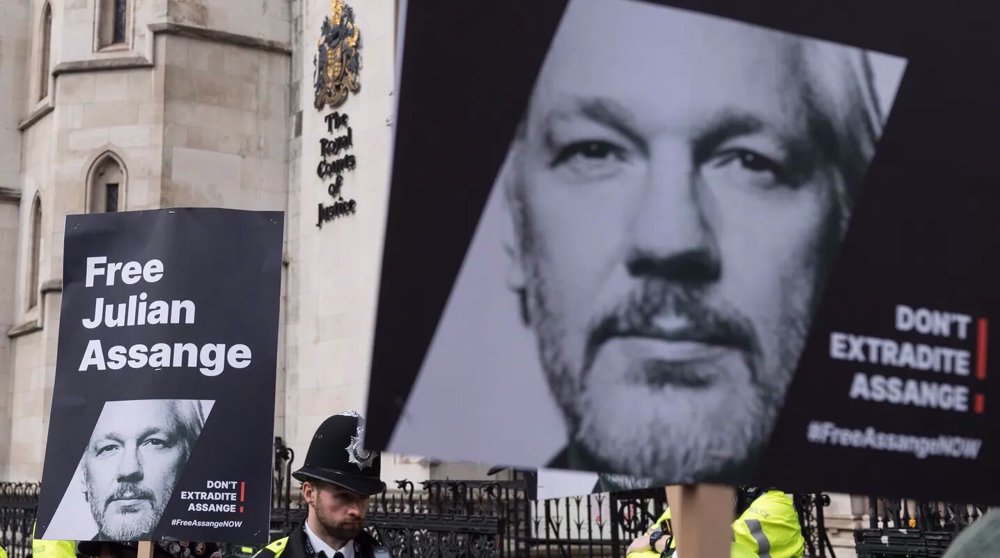US accuses Apple of 'false,' 'corrosive' rhetoric in FBI dispute
The US Justice Department has described American tech giant Apple's rhetoric in the iPhone encryption case as "false" and "corrosive" of institutions that safeguard rights.
The US Federal Bureau of Investigation (FBI) and American tech giant Apple have been engaged in a row over FBI’s claims that it cannot break into an iPhone 5c belonging to one of the terrorists in a deadly attack in San Bernardino, California last year.
The tech giant has argued that the FBI’s demand to roll back data protections to iOS 7 in the iPhone used by Syed Rizwan Farook would give authorities the chance to access other iPhones as well.
Farook, 28, and his wife, Tashfeen Malik, 27, raided a Department of Public Health training event and holiday party on December 2, 2015, killing 14 dead and injuring 22.
Apple's general counsel, Bruce Sewell, has argued that creating a tool to unlock the phone would weaken the security of hundreds of millions of Apple devices, according to Sewell's prepared remarks before the US House of Representatives Judiciary Committee.
"Here, Apple deliberately raised technological barriers that now stand between a lawful warrant and an iPhone containing evidence related to the terrorist mass murder of 14 Americans. Apple alone can remove those barriers so that the FBI can search the phone, and it can do so without undue burden," the Justice Department wrote on Thursday, filing its latest response to Apple in the fight over iPhone encryption.
The Justice Department argued that forcing Apple to help unlock an iPhone in California is a "modest" demand which may find "evidence of a terrorist attack."
"The court's order is modest; it applies to a single iPhone, and it allows Apple to decide the least burdensome means of complying,'' the filing said.
"As Apple well knows, the order does not compel it to unlock other iPhones or to give the government a universal 'master key' or 'back door.' It is a narrow, targeted order... The government and the community need to know what is on the terrorist's phone, and the government needs Apple's assistance to find out," it added.
The US Justice Department, which is in charge of the FBI, has sought court orders to force Apple to extract data from 15 devices in the past four months, beginning with a case in New York City in which Apple declined to cooperate with investigators in October.
VIDEO | Iran marks defeat of US military operation in Tabas Desert
VIDEO | Press TV's news headlines
US troopers crack down on pro-Palestinian protests at University of Texas
VIDEO | German warship departs Red Sea as EU 'naval mission' fails
VIDEO | Palestinians inspect rubble of destroyed building in Rafah
Yemeni forces strike US, Israeli vessels in fresh pro-Palestinian operations
‘Say no to Biden’: US college being pressed not to endorse genocide
VIDEO | UN: Alarming food insecurity crisis grips Afghanistan










 This makes it easy to access the Press TV website
This makes it easy to access the Press TV website